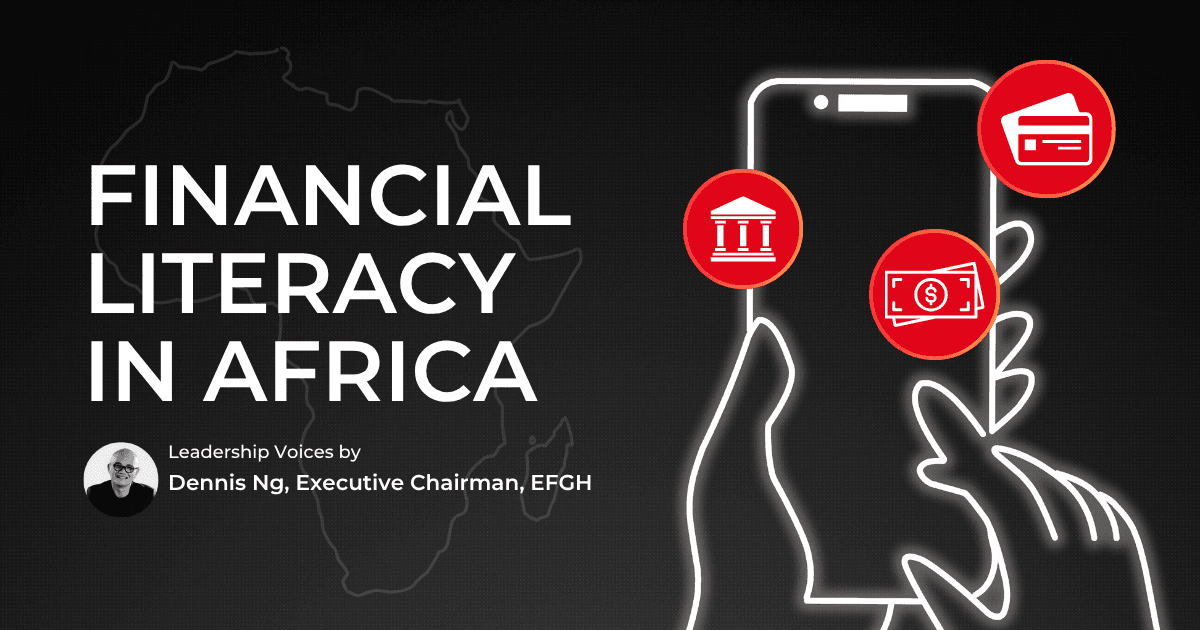Everyone talks about Africa’s fintech boom. The numbers are dazzling:
hundreds of millions of mobile wallets, billions in digital transactions, and
forecasts of a US$1.5 trillion payments economy by 2030.
But here is the conflict. Access is rising fast, while understanding lags
dangerously behind.
In 2017, only 34% of Sub-Saharan Africans had a financial account. Today, it
is 58%, some 405 million people. Mobile money has exploded, with more
than 709 million accounts now moving US$190 billion each year. It is one of
the greatest financial leaps in modern history.
Yet scratch beneath the surface and a harder truth appears. For many,
inclusion means nothing more than transferring money or paying a bill. The
promise of real progress, through microloans, microinsurance and savings
tools that build resilience, remains out of reach. Even in Kenya, Africa’s digital finance champion, fewer than a third of adults use microfinance or
commercial bank services.
The Missing Ingredient: Confidence
The issue is not just technology. It is confidence. According to research cited by Bitcoin KE in September 2025, less than one-third of adults in Sub-Saharan Africa are financially literate, compared to more than 50 percent in OECD countries. This gap between access and understanding underscores the scale of the challenge.
As Dr. Denny H. Kalyalya, Governor of the Bank of Zambia, stated during his keynote at the Launch of Zambia’s 2025 Financial Literacy Week in Mazabuka on 17 March 2025: “Strengthening financial literacy among consumers would enable them to identify financial scams, fraudulent activities and avoid biased advice, thus helping them to make better financial decisions to safeguard their future well-being.”
Without literacy, inclusion is fragile. A farmer can open an account, but if he or she does not understand interest, they are vulnerable.
A shopkeeper can buy insurance, but without knowing what it protects, he will not renew. Access without knowledge risks creating millions who are included in name only.
Why EFGH Puts Literacy First
At EFGH, we have built our mission around this gap. Financial literacy may be in its infancy at EFGH, but it is not an afterthought. We are committed to building it steadily into the foundation of real inclusion.
That means more than content. It is engagement, meeting people where they are, whether in schools, markets or on mobile phones. It is design, building platforms with simple user interfaces that make complex decisions intuitive. It is distribution, getting tools into the hands of everyday Africans, not just the urban elite. And it is innovation, using artificial intelligence to personalise education and turn information into confidence.
An example comes from Kenya, where M-Shwari’s 52-week savings challenge encouraged customers to put aside money weekly. As highlighted by Bitcoin KE, this simple programme measurably improved savings behaviour and showed how fintech products can double as tools for financial education.
EFGH Labs: Turning Ideas Into Action
EFGH Labs is our innovation engine, dedicated to reimagining the future of finance, from practical tools that build literacy and trust, to deep technologies like agentic AI and DeFi platforms.
In the Labs, we are experimenting with how artificial intelligence can adapt financial education to local contexts, how data analytics can identify gaps in protection, and how better platform design can reduce friction for first-time users.
The Labs is where we test, learn and scale what works. For us, it is not about shiny technology. It is about practical solutions that give people confidence with their money.
The Scale of the Opportunity
The market signals are unmissable. Africa’s mobile money industry, valued at US$804 million in 2024, is set to soar past US$3.6 billion by 2033. Microinsurance is expected to double from US$4.2 billion to US$8.2 billion in the same period. These are not abstract statistics. They are the foundations of a continent’s future.
But growth without literacy is growth with cracks. The fintech revolution is building the rails. The literacy revolution is what ensures people know where those rails can take them.
What This Means for the World
For a young Singapore company like EFGH, now preparing for our Nasdaq listing, this is not just an African story. It is a global blueprint. Africa is showing us that finance can be simple, accessible and human. The challenge now is to make sure it is also understood.
Because in the end, inclusion is not about how many accounts are opened. It is about whether a street hawker in Lagos or a farmer in Zambia feels confident enough to use them.
That is where the real future of finance will be decided.
Share




